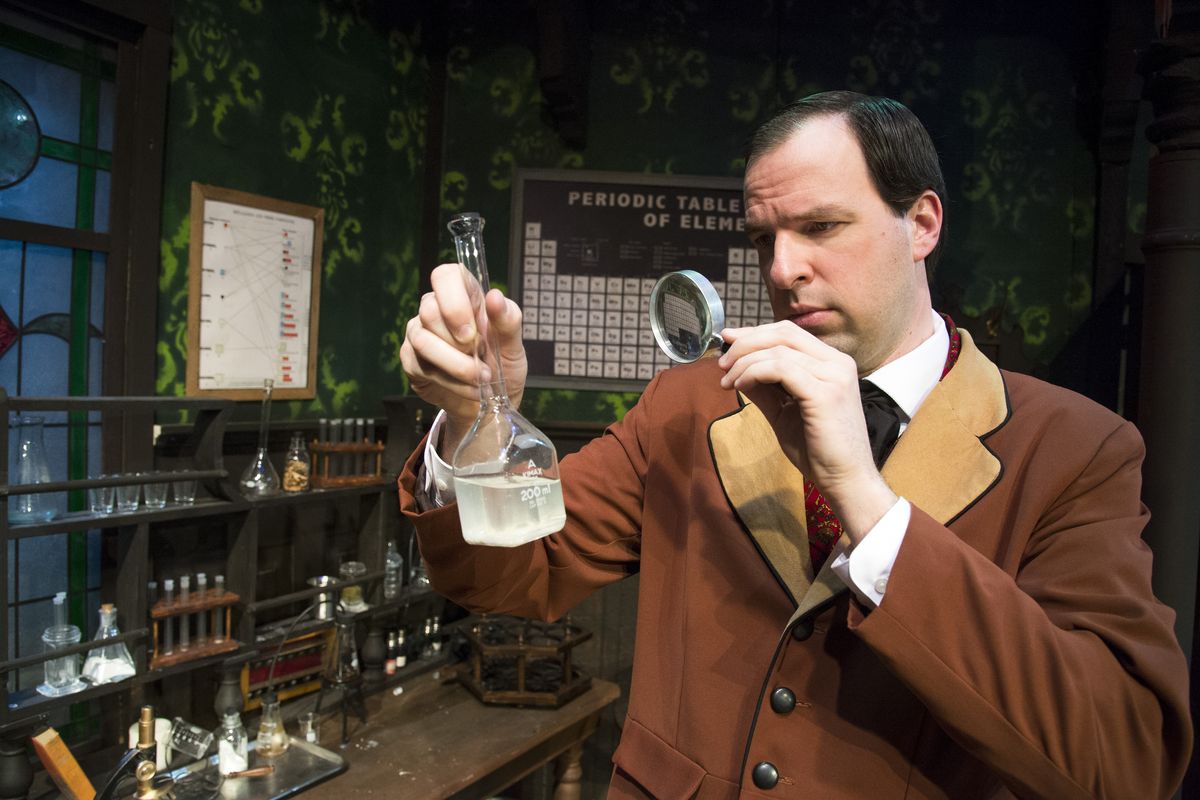Famous sleuths Holmes and Watson visit Civic Theatre stage

Everyone loves a good whodunit. While Spokane Civic Theatre continues its production of “Clue: The Musical” in its downstairs studio space, another mystery, “Sherlock Holmes and the Curse of the Sign of Four,” premieres on the main stage tonight.
Based on Arthur Conan Doyle’s 1890 novel, the second to feature literature’s most famous detective, the story follows the typical blueprint of the best Holmes mysteries: It involves enigmatic puzzles, mistaken identities, action and peril (this one features an unfortunate accident with a crocodile) and a little romance.
Directed by Chris Wooley, “Curse of the Sign of Four” centers on a case that finds Holmes (Chris Taylor) and his pragmatic assistant Dr. Watson (Damon Mentzer) tracing the whereabouts of a woman’s missing father while also investigating the origins of a series of pearls she has received. Both incidents seem to be connected, and their search uncovers a scheme involving a one-legged man, a tea plantation in India and a priceless treasure.
“This is a Watson-driven story, so Watson records what Sherlock does and kind of serves as our narrator,” Wooley said. “We have lots of asides, fast-forwarding through time and flashbacks – some unique conventions you don’t normally see in a stage play. It definitely relies on the audience to keep up … but it’s more about the ‘why’ than the ‘who.’ ”
What’s most notable about “Curse of the Sign of Four” is that it was adapted for the stage by Civic’s technical director David Baker, who also designed the sets. Wooley said that having the playwright on hand meant that this rehearsal process was much different than one in which the script is already set in stone.
“As we see it unfold, and as the actors add new life to it and interpret the characters in different ways, it modifies the original meaning of the script,” Wooley said. “So the script is changing continually. … Luckily, we’ve got an amazing cast of veteran actors that know what they’re doing, so they’ve been able to handle the changes very nicely.”
Holmes and Watson remain tremendously popular characters, turning up in Hollywood blockbusters and popular television series, and the key to their longevity, Wooley said, is that they’re a consummate team – Holmes is the offbeat yin to Watson’s down-to-earth yang.
“Sherlock is an intellectual superhero – he’s got the ability to look at a situation, analyze it and then come up with an abstract pattern that makes sense once he says it,” Wooley said. “It’s something that we as normal people can’t do. … He doesn’t care what anybody thinks of him; he’s got total confidence in his situation. He’s going to be blunt and upfront and do the things we wish we could do.
“And then Watson helps complement that. He’s a sounding board, so we can understand where (Holmes) is coming from and how he got to those different conclusions. He’s kind of the everyman that allows us to follow along with Sherlock. I don’t think either of them would be nearly the characters they are without the other one.”